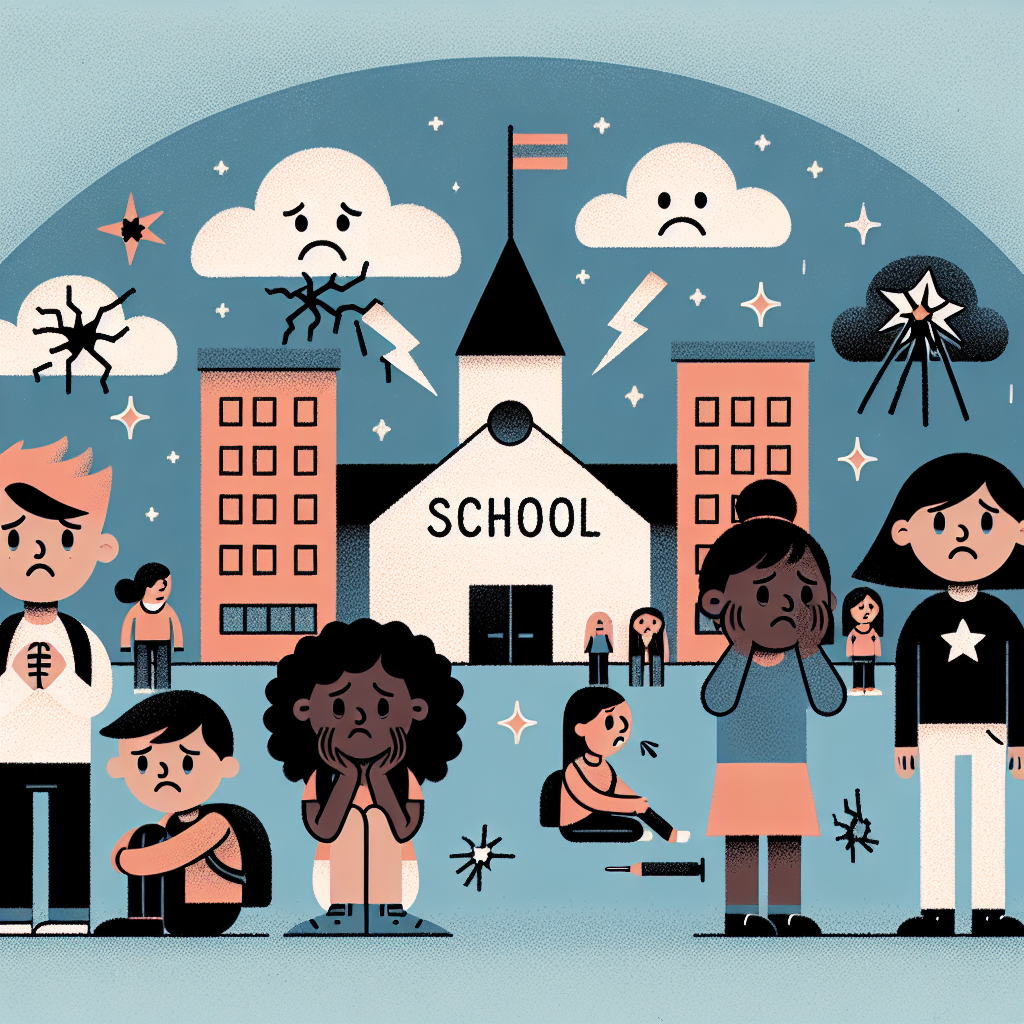
The Rise in Attacks on Schools and Its Impact on Children’s Mental Health
Across the globe, educational institutions are experiencing a disconcerting rise in attacks, which are having far-reaching effects on the mental health and well-being of children. According to a report by the United Nations, there has been a staggering 44% increase in attacks on schools situated in conflict zones over the past year alone. Such attacks often result in the death, abduction, and trauma of students and educators, creating an environment rife with fear and instability.
The Scope of the Crisis
The alarming rise in violence against schools is not restricted to one region but is a pervasive issue affecting children worldwide. From makeshift classroom setups in Gaza to solar-powered educational solutions in Sudan, the UN has been actively engaged in mitigating educational disruptions brought upon by these conflicts.
Understanding the Psychological Impact
For children, the impact of witnessing or being involved in such violent incidents can be catastrophic. Exposure to violence not only impedes their ability to learn but also significantly affects their mental health_long-term. Anxiety, depression, and post-traumatic stress disorder (PTSD) are common repercussions among young survivors of school attacks. Research highlights that stress indicators in children, such as cortisol measured through hair samples, correlate with heightened anxiety and depression[source].
These psychological impacts are intensified by the loss of a safe, consistent learning environment, which schools typically provide. Children deprived of education often miss crucial developmental milestones, affecting their cognitive and emotional growth.
Intervention and Support Strategies
While the physical rebuilding of educational infrastructure is vital, addressing the psychological scars left by these attacks is equally important. Efforts must focus on creating comprehensive mental health support systems that are culturally sensitive and easily accessible to affected communities.
Role of Technology in Psychological Support
The integration of technology, such as the use of electronic tattoos for measuring mental strain, offers innovative ways to monitor and address the psychological needs of children in volatile regions. Such technologies can provide real-time data on stress levels, facilitating timely intervention.
Beyond technology, traditional supports, such as unconditional cash transfers to families, have shown promise in improving postpartum mental health and increasing maternal engagement in health, which indirectly benefits children’s mental well-being.
Community Involvement and Resilience Building
Community-driven efforts are essential. In war-torn regions, support through local initiatives can empower families and restore a semblance of normalcy. Programs that encourage community healing through shared experiences, such as “forest baths” or multisensory VR therapeutic interventions, offer promising results in reducing anxiety and boosting mood.
Conclusion
The challenge of reversing the detrimental psychological impacts of school violence is complex and multifaceted, requiring coordinated efforts from global organizations, local governments, communities, and technology innovators. Protecting educational spaces and ensuring mental health support for affected children must be a global priority if we hope to foster resilient future generations.


